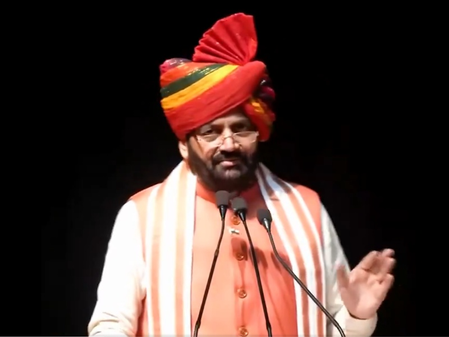Copyright thediplomat

In a bid to broaden their support base, Pakistan’s mainstream Islamist parties are embracing a new strategy. Parties like the Jamaat-e-Islami (JI) and the Jamiat Ulema-i-Islam Fazl (JUI-F) have long depended on ideological-religious preaching to rally voters. However, these groups have increasingly started to merge socio-economic populism into their political rhetoric to lure voters. It appears to be a response to an electorate that is increasingly preoccupied with economic issues and a growing desire for accountability from politicians. For Islamist parties, religious fervor and preaching about Islam alone no longer serve the purpose. In recent months, JI has taken up a narrative-building effort to push the idea of a systematic overhaul of Pakistan’s governance system. The party recently announced a massive three-day gathering at Lahore's Minar-i-Pakistan from November 21-23 and framed it as a turning point for changing the country’s decaying political and economic system. In recent weeks, the party has actively organized rallies and gatherings to discuss youth unemployment and economic stagnation in the country. This marks a noteworthy departure from JI's traditional focus on moral policing. Similarly, JUI-F has ramped up its criticism of economic mismanagement and other foreign policy-related issues. Its leaders have warned that they plan to launch a movement against the government’s flawed policies, which are fueling rampant inflation. JUI-F spokesperson Aslam Ghauri said last week that the government should focus on ensuring the availability of basic necessities to the public instead of engaging in regional “power games.” He emphasized that the worsening economic conditions, soaring prices, and rising lawlessness were pushing the public to the brink and also warned of launching a movement against “IMF-dictated policies.” The example of Tehreek-e-Labbaik Pakistan (TLP) is also relevant in this regard. The party, which is notorious for violent blasphemy campaigns and was banned last week by the government, tested these waters in October 2025. The party tried to mobilize its voters for a Gaza solidarity march from Lahore to the U.S. Embassy in Islamabad recently to protest against the United States' role in the Middle East crisis. Rejecting the Gaza peace deal, TLP leaders described it as a “conspiracy to subjugate the Palestinian people.” The party sought to justify its protest by saying that it was for the people of Gaza. With this move, the TLP effectively tried to shift its core focus from domestic religious grievances to geopolitical and foreign policy issues. While the ban on the TLP underscores the perils of extremism, its decision to launch a march toward Islamabad over a Middle Eastern issue highlights how even radical Islamists are eyeing foreign policy issues as a voter hook. This shift says a lot about the evolving nature of Islamist politics in Pakistan. These parties are carving a role for themselves in governance-related affairs by blending faith with demands for accountable rule, anti-corruption drives, and relief from economic woes. The shift reflects a sobering assessment that their core religious base, which is tied to seminaries and conservative enclaves, can't create breakthroughs for them in the national electoral scene. For example, in the 2024 elections, JI garnered just 1.3 percent of the national vote. It failed to win a single seat in the National Assembly. The party received its highest number of votes in Sindh’s Karachi division. It is noteworthy that this performance was due to the party’s strong grassroots organization and momentum from the 2023 local government elections, where it secured around 100 union council seats by capitalizing on public frustrations with infrastructure failures, water shortages, and poor civic services under the Pakistan People’s Party (PPP)-led provincial government. As for JUI-F, it secured 3.7 percent or 2.16 million votes nationally. In Punjab, Pakistan’s most populated province, it only received 97,604 votes, while in the capital Islamabad, it got just 2,630 votes. These results reflect a poor showing in a country of 128 million eligible registered voters, particularly in urban centers of Punjab and Sindh provinces. Parties like JUI-F and JI seem to have built strongholds only in pockets where their religious seminaries thrive or conservative communities cluster, such as JUI-F's Deobandi networks in Khyber Pakhtunkhwa. JUI-F, for instance, runs a few seminaries in Punjab and maintains a feeble electoral footprint in the province. Similarly, JI's presence is scattered in Sindh and Punjab and confined only to seminary-linked urban pockets. The last time that Islamist parties scored a major victory was in 2002, when the Muttahida Majlis-e-Amal (MMA), a six-party coalition including JUI-F and JI, won in Khyber Pakhtunkhwa and Balochistan provinces. The MMA’s electoral gains in 2002 were largely bolstered by the boycott of elections by major parties, including the Pakistan Muslim League-Nawaz and the PPP, amid crackdowns and widespread allegations of rigging in favor of the religious alliance. Furthermore, the surge in anti-American sentiment in Khyber Pakhtunkhwa and the tribal areas – fueled by the 2001 U.S.-led invasion of Afghanistan – significantly bolstered the MMA’s electoral support in 2002. With no MMA-style alliance on the horizon going forward and no engineered support on behalf of the Islamists likely, Islamist parties must now court the mainstream to do well electorally. Data reveals why Islamist parties may need to take this approach, particularly to win young voters. A recent survey conducted by Gallup Pakistan ranked the economy as the top public worry for young people, with 70 percent citing inflation and 59 percent poverty as paramount concerns. The economic situation eclipsed religion and even security as issues of concern to Pakistani youth. Moreover, a Pakistan Institute of Legislative Development and Transparency (PILDAT) survey of the 2024 national elections revealed a sharp rise in youth participation. During the 2024 elections, the turnout of young voters reached a record 48 percent. This marked an increase of 11 percentage points from 37 percent in the 2018 elections. According to the analysis, this surge was driven by mounting concerns over governance failures and anxieties about the future. Arguably, Islamist groups like JI and JUI-F are reading these trends and now speaking the language of everyday issues, including jobs, unemployment, and prices, to attract voters beyond their core religious base. When these parties frame themselves as advocates of a better economy and governance and speak about real public needs, it helps somewhat in softening their hardline religious rhetoric and image. Still, many issues remain that Islamist parties avoid discussing. These parties persistently resist seminary reforms and block syllabus overhauls or state oversight that could curb extremist curricula. JUI-F, JI, and other Islamist groups like to push their democratic credentials but they shield their madrassah empires and undermine broader governance pledges made with the state over issues related to seminary reforms to tackle extremism. These parties must remember that to win mainstream voters’ trust, they need to open themselves to accountability as well. Without it, talk of fixing the economy will ring hollow. Ultimately, this shift shows Islamist parties can adapt and survive. But to truly matter and win votes, they must move beyond just protecting their turf and using religious positions to promote genuine and meaningful reforms.



